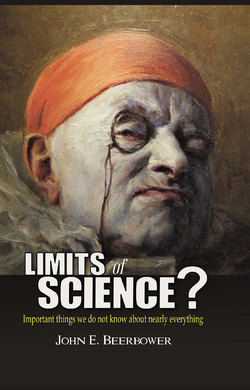Читать книгу Limits of Science? - John E. Beerbower - Страница 54
На сайте Литреса книга снята с продажи.
History as science
ОглавлениеWhatever may be said about the “humility” of the historian in our contemporary world, there are indications that at least some historians, as well as other social scientists, have aspirations to achieve the same status as the natural sciences.
For example, Jared Diamond and James A. Robinson (eds.) in Natural Experiments of History (2010) discuss history as a science.1 In their prologue, the editors complain that “laboratory scientists …look[ ] down on fields of science that cannot employ manipulative experiments” and observe that, nonetheless, “there are many fields widely admitted to be sciences” in which it is not possible to conduct experiments, citing evolutionary biology, paleontology, epidemiology, historical geology and astronomy. Id., p.1. They go on to discuss the use in history of “natural experiments” or comparative methods “preferably quantitative[ ] and aided by statistical analyses." Id., pp.1–2.2 The book then describes several such studies or experiments.
In this context, it is worth noting that some practitioners of these other sciences, such as evolutionary biology, have sought to emulate, as far as possible, the methodological approaches of physics in the use of laws and mathematical techniques. See, e.g., Martin A. Nowak (with Roger Highfield), Super Cooperators (Altruism, Evolution, and Why We Need Each other to Succeed) (2011), pp.1–2, et seq.
Two things are likely to strike the reader of Natural Experiments of History. First, it is surprising that the application of comparative analyses and statistical methods in historical studies would be viewed as innovative or controversial. One would have thought that the potential benefits of such techniques would have been obvious and that it was eminently sensible to see what results could be achieved. (“History is full of such potential experiments; it is just that historians have not yet thought of them in these terms.” Id., p.249.) Second, it is surprising that such highly respected and accomplished historians as the editors would take such an apologetic and defensive approach to the subject—the useful question is not how history compares to the natural sciences, but whether these techniques of analysis can further our understanding and knowledge.
Recently, historian of science Steven Shapin reviewed a new book by Nobel prize-winning physicist Steven Weinberg entitled To Explain the World (2014). “Why Scientists Shouldn’t Write History,” The Wall Street Journal, February 13, 2015. Shapin describes how much of Weinberg’s book is about the development of physics from the ancient Greeks through the seventeenth century. Shapin is not impressed.
He explains that historians actually use their specialized skills and training to try to understand events of the past in light of the full context of the world at the time in question, including the participants’ concept of their place and role in the world. It is not meaningful history just to try to identify who (coincidentally) made discoveries or had insights that seem to be important in today, that is, from the standpoint of the modern worldview. In Shapin’s view, Weinberg’s attempt to write history falls short.
